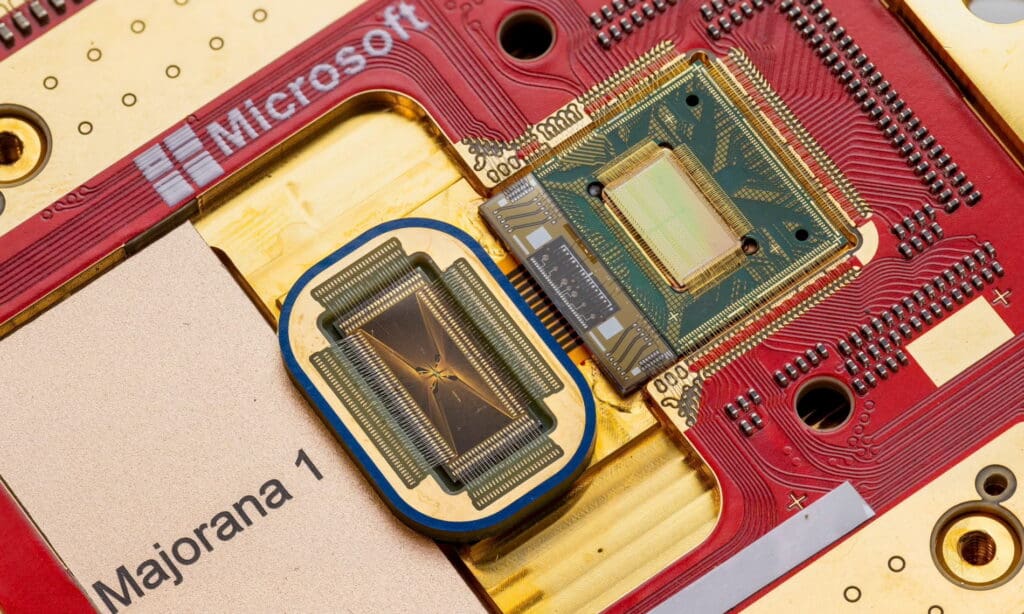Microsoft Achieves Quantum Computing Milestone: A New State of Matter

The tech world is abuzz, and for good reason.
Microsoft has unveiled its new quantum chip, Majorana 1, a groundbreaking development that promises to reshape industries and redefine what’s computationally possible. This isn’t just an incremental upgrade; it’s a potential paradigm shift, moving quantum computing from the realm of theoretical physics closer to practical application. As Forbes reported, this new chip leverages a revolutionary approach using topological qubits, a technology Microsoft believes will enable quantum computers to tackle previously unsolvable, industrial-scale problems within years, not decades
Understanding the Significance
Traditional computers store information as bits, representing either a 0 or a 1. Quantum computers, however, use qubits. Qubits can exist in a state of superposition, meaning they can be 0, 1, or both simultaneously. This allows quantum computers to perform calculations in a fundamentally different way, exploring multiple possibilities at once and potentially solving complex problems far faster than classical computers.
However, existing quantum systems are incredibly delicate. The slightest environmental disturbance can introduce errors, making them unstable and unreliable. Microsoft’s Majorana 1 chip tackles this challenge head-on. It utilizes topological qubits, a new type of qubit that is inherently more stable and less prone to errors. As Microsoft technical fellow Chetan Nayak explained, “We took a step back and said, ‘OK, let’s invent the transistor for the quantum age. What properties does it need to have?’” This new approach, using a novel material called a “topoconductor,” creates exotic particles called Majoranas that protect quantum information.
Potential Industry Transformation
The implications of a stable and scalable quantum computer are vast. Microsoft envisions applications that could revolutionize numerous fields:
- Materials Science: Designing self-healing materials, fixing cracks in bridges or scratches on car doors, and developing new materials with unprecedented properties.
- Medicine: Accelerating drug discovery by accurately modeling molecular interactions and developing personalized medicine tailored to individual genetic makeups. This could lead to faster responses to pandemics and more effective treatments for chronic diseases.
- Artificial Intelligence: Dramatically speeding up the training of AI models, enabling breakthroughs in natural language processing, image recognition, and autonomous systems.
- Solving Global Challenges: Tackling complex problems like breaking down microplastics, combating global hunger through improved agricultural processes, and designing more efficient energy solutions.
- Cybersecurity: While quantum computers pose a threat to current encryption methods, they also offer the potential for developing new, quantum-resistant cryptographic techniques.
The Timeline and Challenges
While the potential is immense, it’s important to remember that quantum computing is still in its early stages. Microsoft’s current chip, a gold square measuring 8mm x 8mm, contains eight topological qubits. The real challenge lies in scaling this technology to millions of qubits while maintaining accuracy and consistency. Microsoft aims to achieve this, believing its approach offers a clear path to scalability. Bill Gates has even suggested that useful quantum computers could arrive in as little as three to five years. However, other experts, like Nvidia’s Jensen Huang, believe a more conservative estimate of 15 to 30 years is more realistic.
Staying Competitive in a Quantum Future with Kaleidoscope Affect
The rapid pace of technological advancement, exemplified by Microsoft’s quantum breakthrough, creates both opportunities and challenges for businesses. To thrive in this evolving landscape, companies need to be proactive, adaptable, and strategic. That’s where Kaleidoscope Affect comes in.
We empower organizations to navigate the complexities of digital transformation and harness the power of emerging technologies like AI and quantum computing. Our Innovation and Strategy services are designed to guide businesses toward sustainable growth and resilience. We offer:
- Strategic Planning: We help clients develop forward-thinking strategies that anticipate future trends and position them for success.
- Technology Assessment and Adoption: We provide expert guidance on evaluating and implementing new technologies, ensuring a smooth transition and maximized benefits.
- Cybersecurity Consulting: We help organizations protect their assets and data in an increasingly complex threat landscape.
- Data Management and Analytics: We enable businesses to leverage their data to gain valuable insights and make informed decisions.

Kaleidoscope Affect helps businesses understand the changing technological landscape, develop proactive strategies to mitigate risks, and build long-term resilience. We are more than consultants; we are your partners in transformation. We work closely with our clients to develop tailored strategies that align with their specific goals, enabling them to effectively compete and secure their future.
Conclusion
Microsoft’s new quantum chip represents a significant step towards a future where quantum computing transforms industries and solves some of the world’s most pressing problems. As this technology continues to develop, businesses need to be prepared to adapt and leverage its potential. Kaleidoscope Affect is committed to helping our clients navigate this exciting but complex future, ensuring they remain competitive and thrive in the age of quantum computing and beyond.

Dr. Linda L. Singh
CEO of Kaleidoscope Affect
